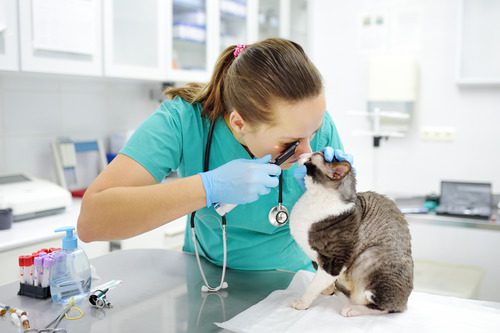Cat Scratched Their Eye: What Now?
When you see your cat with a scratched eye, it can be quite distressing. Eye injuries in cats are not uncommon, but they do require prompt attention to prevent further complications. This blog will help you understand what to do if your cat has a scratched eye and how to ensure they receive the best care.

Identifying a Cat Eye Scratch
A scratched eye, also known as a corneal abrasion, can happen for various reasons. Cats are curious creatures, often exploring and interacting with their environment in ways that might lead to minor injuries. Here are some signs that might indicate your cat has a scratched eye:
- Squinting or keeping the eye closed
- Excessive tearing or discharge
- Redness and inflammation
- Pawing at the eye
- Visible scratches or marks
If you observe any of these signs, it’s essential to contact Acton Animal Hospital at 978-263-7477 for professional advice and care.
Immediate Steps to Take
When you suspect your cat has a scratched eye, here are some immediate steps you should take:
- Keep your cat calm and prevent further injury: Try to keep your cat from rubbing or scratching their eye further. An Elizabethan collar (e-collar) can be helpful in preventing this.
- Avoid home treatments: Do not attempt to treat the eye yourself with over-the-counter eye drops or ointments unless prescribed by a veterinarian. These can sometimes worsen the injury.
- Contact your veterinarian: Call Acton Animal Hospital at 978-263-7477 as soon as possible. Eye injuries need prompt veterinary attention to prevent complications like infections or ulcers.
What to Expect at the Vet
When you bring your cat to Acton Animal Hospital for a scratched eye, the veterinarian will conduct a thorough examination. The vet will look at your cat’s eye using specialized equipment to identify the extent and location of the scratch. They may perform a fluorescein stain test which involves applying a fluorescent dye to the eye to highlight any scratches on the cornea.
Based on their findings, the vet will suggest a treatment plan which may include prescription eye drops or ointments to reduce pain and prevent infection.
Diagnostic Tests
The veterinarian might also perform additional diagnostic tests to rule out other eye conditions. These tests can include:
- Tonometry: Measuring the pressure inside the eye to check for glaucoma.
- Schirmer tear test: Assessing tear production to ensure your cat’s eyes are adequately lubricated.
- Culture and sensitivity tests: If an infection is suspected, these tests help identify the bacteria involved and the most effective antibiotics.
Preventing Future Eye Injuries
Preventing eye injuries in cats involves a combination of regular check-ups and creating a safe environment. Here are some tips:
- Regular visits to Acton Animal Hospital can help detect and address potential issues early.
- Ensure your home and garden are free of sharp objects or plants that could cause eye injuries.
- Keep an eye on your cat’s interactions with other pets and animals to prevent fights and play-related injuries.
Safe Play Practices
Encouraging safe play is also crucial in preventing eye injuries. Keep an eye on your cat during playtime, especially when they are interacting with other animals. Choose toys that are safe and unlikely to cause injury. Avoid toys with sharp edges or small parts that could damage the eyes.
The Importance of Prompt Treatment
Prompt treatment of a scratched eye is vital to prevent complications. Untreated corneal abrasions can lead to infections, ulcers, or vision loss. These complications may require more intensive treatment or cause permanent damage to your cat’s vision.
Follow-Up Care
After the initial treatment, follow-up care is crucial for recovery:
- Administering medications: Follow the vet’s instructions on applying eye drops or ointments.
- Regular check-ups: Schedule follow-up visits to ensure the eye is healing correctly.
- Monitoring: Keep an eye on your cat’s behavior and condition, and report any changes to the veterinarian.
When to Call Acton Animal Hospital
Knowing when to seek professional help is essential for your cat’s health. Contact Acton Animal Hospital at 978-263-7477 if you notice persistent symptoms, any increase in redness, discharge or swelling, or your cat seems more lethargic or in pain.
Caring for Your Cat’s Eye Health
Eye injuries in cats, such as a scratched eye, need prompt and proper care to prevent complications. If you suspect your cat has scratched their eye, take immediate steps to keep them calm and contact Acton Animal Hospital at 978-263-7477 for professional advice and treatment. By recognizing the signs and seeking timely veterinary care, you can help ensure your cat’s eye heals properly and they remain healthy and happy.
Recent Posts
About Us
Our veterinarians in Acton, MA bring over 80 years of combined experience and a multitude of services for your pet.
